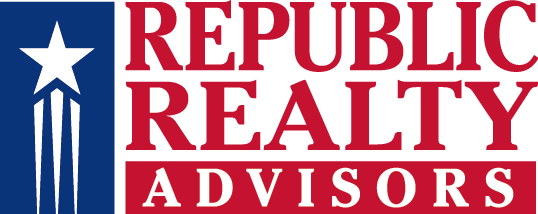Over the last few days, I have received several inquiries from my clients asking how to go about seeking rent relief from their landlords. Their businesses have limited or no income due to shutdowns and greatly reduced customers/clients related to the COVID-19 pandemic and consequently won’t be able to pay rent for very long before running out of cash.
Bob Gibbons, a member of the Commercial Brokers Alliance of North Texas, wrote about the process of seeking rent relief and offered to share it with all our clients and on social media.
This is for those experiencing loss of business and/or complete shutdowns. We are not singling out any company or individual in particular, but you may know someone who needs this information. They are understandably stressed and trying to figure out how to pay their employees, pay the rent, and keep their businesses viable or at least treading water until they can get back to serving customers. We don’t have all the answers, but the following guidelines may help you negotiate some rent relief.
- Make a Specific Request – when you make a request to the landlord, be very specific. Don’t call the landlord and just say you need help for a while. State an exact request. I was talking with a client this morning and agreed their request would be to move a few months of free rent they are due in the future to today continuing until 60 days after the government allows large group gatherings. The logic is that they have no income at all while the shutdown continues and once the switch gets flipped back on, it will take a couple of months for activities to resume and cash to start flowing again. In this case, we aren’t asking the landlord to give up anything. We’re just asking for the timing of rent payments to be rearranged.
In most cases, there is no future free rent so you must decide whether to request that the landlord waive rent totally or just defer it. Asking for a total waiver is a much bigger ask than just deferring payments. In the latter case, you are really only asking the landlord to give up on the time value of money while the former is a total loss.
Think of things that you can give the landlord in return. For example, if your lease expires in a year or two, you may offer to extend the lease now for another 3-5 years in exchange for rent relief today. This effectively moves concessions the landlord might offer on a normal lease extension to today. Of course, the landlord must believe that the company will survive to pay that future rent.
As you can imagine, it’s hard for landlords to agree to waive/defer rent because they have to answer to investors and lenders and it probably also makes a difference in their ability to pay their employees too. Remember that your request to the landlord, if granted, may put them in a similar position to what you are experiencing.
- Provide Financial Backup – a request for rent relief is essentially the same thing as informing a bank that you can’t make payments on a loan. You should, therefore, be prepared to provide all the same information that you would expect to give a bank. My recommendation is to give the landlord a current balance sheet, P&L and cash flow statement. You need to demonstrate how much cash the business has, what your burn rate is, and how long you can survive without the relief you are requesting. You must show the landlord that the chances of the business surviving and continuing to pay rent in the future is directly contingent on receiving the rent relief you have requested. Be prepared to show bank statements if needed to add further credibility to your request.
If there is a personal guaranty in the lease, the guarantor should be prepared to provide his/her financial information as well. If the business is failing, but the guarantor is flush with cash and investments, seeking rent relief won’t be granted.
DO NOT make a request for rent relief unless you will absolutely go out of business otherwise.
- Have a Recovery Plan – it’s not enough to show the landlord how the business will fail without the rent relief. You must demonstrate how the business will ultimately succeed, start paying rent and pay back the deferred rent in the future. Show specific steps that you will take which will clearly show how revenue will start coming in and turn things around. Maybe it’s a new marketing effort to be implemented or a different way of doing business or a new way to reach new customers.
In today’s COVID-19 situation, it’s really just a matter of government regulation allowing you to just start operating again. But how long will it take to start generating revenue again and what specific steps will you take once the switch is flipped back on. You must make the landlord believe you will succeed if they provide short-term help.
- Share the Pain – landlords know they have a large target on their foreheads when a tenant is in financial trouble. The #1 expense for most companies is personnel – payroll, benefits, etc. But the #2 expense is the occupancy cost of the office. The big difference is that personnel is a highly variable expense while you are stuck with your lease expense for the length of the lease. The lease is a fixed expense with occasional opportunities to make adjustments when it expires.
Landlords know that when a tenant is in trouble, they are first in line, so you need to demonstrate what you have done to spread that pain around before going to them. Don’t go to the landlord if you haven’t taken a pay cut yourself or taken any other steps to reduce expenses. Here are some things you might want to consider:
- Take a pay cut yourself or no pay at all
- Leadership & staff pay cuts
- Layoffs
- Collect receivables
- Require prepayment on new sales instead of net-30 terms
- Implement new marketing activities
- Vendor concessions (extend payment terms, better pricing)
- Make a claim on your Business Interruption (BI) insurance policy (more on this below)
- Take on a new partner
- Seek a business loan (see SBA info below)
- Consider merging with another company
- Business Interruption Insurance – Hopefully, you have BI Insurance. Sometimes your office lease requires it, but it’s one of the first things tenants try to negotiate away. It basically pays to restore your business to the position it would have been in had the damaging condition not occurred. In Texas, fire, tornado, and hail are common conditions that damage a building to the point it can’t be used and a BI claim may be appropriate. If you have it, contact your agent immediately to review your policy and possibly open a claim.
Does COVID-19 qualify as a claimable event? That depends on how your policy is written. According to an article in Risk Management magazine, if your policy is an “all risk” policy, it likely will consider COVID-19 a covered cause of loss. You will have to prove actual economic harm to your business, of course. Many policies are “basic” or “broad” forms which specify the qualifying perils. So check with your insurance agent.
It appears that the COVID relief/stimulus package requested by President Trump to cut payroll taxes, provide testing and virus-related medical care at no cost, and possibly provide relief to certain industries and hourly employees suffering from fallout from the virus has passed! Who knows what the details of that actually include, but you will hear about it in the news. I would think the Texas Workforce Commission would be a good place to keep watch as that seems like a likely place for an employee protection program to be administered.
- Resources – The Small Business Administration (SBA) has a special page on its website addressing resources for businesses and employers. This includes everything from regular loans to disaster loans to facts about COVID-19 and how to communicate with employees.
One other resource you might want to check out is the website for your chamber of commerce. The Dallas Regional Chamber, Plano Chamber of Commerce and Waxahachie Chamber of Commerce have done a nice job providing a list of resources on their websites.
Bill Bell – If you have any questions about the process or just want to talk about your lease situation and how Republic Realty Advisors can be of service, please visit our website or call us at (214) 342-2355. I wish you the best in these unusual and unexpected times. Feel free to share this with others who may benefit from this information.
Bill Bell, is a Commercial Real Estate Broker with Republic Realty Advisors serving clients in Dallas-Fort Worth and North Texas. Bill helps business owners locate and lease or purchase office, retail or flex space. For those looking to diversify their portfolios, he can find and help evaluate investment-quality commercial real estate opportunities.

